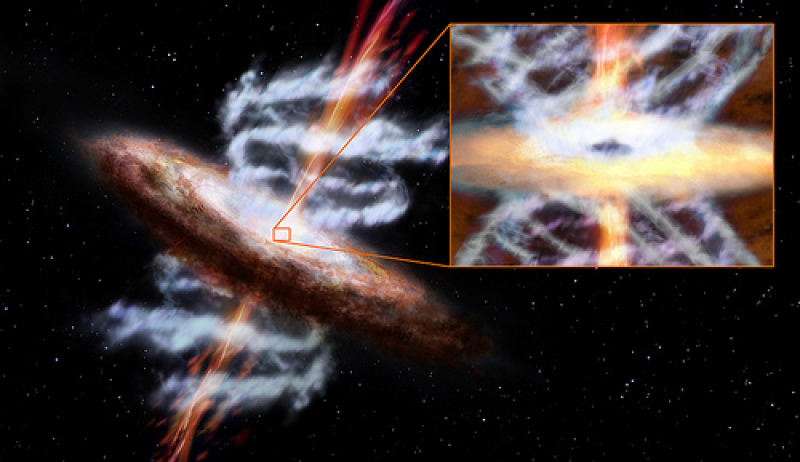
Scientists from NASA were able to witness how a black hole from a different galaxy burped out waves of gases after ingesting nearby matter.
According to them, this strange phenomenon could provide important clues regarding the formation of stars, ABC News reported.
Scientists already know that dust-filled gases, like those found in the Milky Way galaxy, can lead to the development of stars. However, stars don't usually form in the center of galaxies, where black holes normally exist, Space.com reported.
But recently, with the help of NASA's Chandra X-Ray Observatory, astronomers were able to observe a phenomenon that could the mystery behind star formations.
As noted by the scientists, a black hole in galaxy NGC 5195, which is only about 26 million light years away from Earth, belched and emitted powerful blasts of gases. According to lead researcher Eric Schlegel of San Antonio's University of Texas, like people, black holes also get full after eating. This is then manifested through an outburst from its center.
"For an analogy, astronomers often refer to black holes as 'eating' stars and gas," he said in a press release. "Apparently, black holes can also burp after their meal."
"Our observation is important because this behaviour would likely happen very often in the early universe, altering the evolution of galaxies," Schlegel continued. "It is common for big black holes to expel gas outward, but rare to have such a close, resolved view of these events."
The researchers also noted that burping out the gases is an essential characteristic of black holes because it helps in preventing them from growing bigger. But aside from this, the dust expelled from the outburst can also contribute to the formation of stars. And, due to the force exerted by the outburst, the dust particles and gas are hurled outwards, away from the center of the black hole or galaxy.
This could be a possible reason as to why stars rarely exist in the middle of a galaxies.
In addition, this discovery could also change how people view black holes, which are often referred to as devourers of everything.
"We think that feedback keeps galaxies from becoming too large," researcher Marie Machacek stated. "But at the same time, it can be responsible for how some stars form. This shows that black holes can create, not just destroy."
The findings of the researchers were presented during the 227th Meeting of the American Astronomical Society held in Florida this week.


















